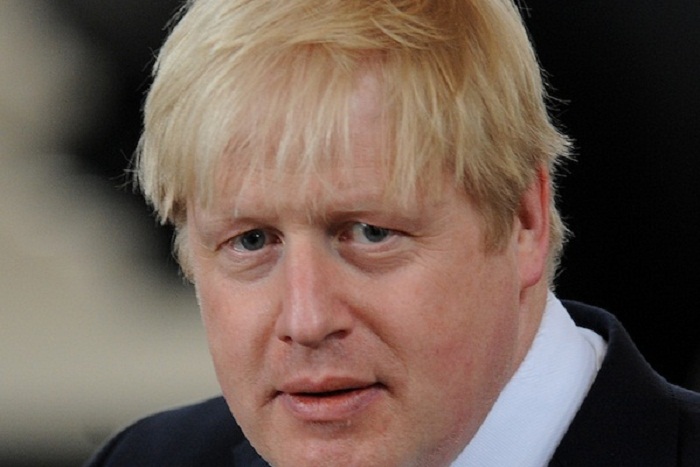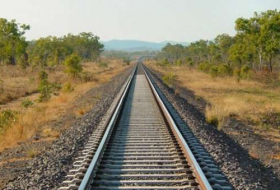Boris Johnson avoids questions in the Gambia about colonialism views

Johnson’s appointment as foreign secretary raised eyebrows across the African continent, which he referred to last year as “that country”.
He has written nostalgically of colonialism in Africa. “The continent may be a blot, but it is not a blot upon our conscience,” he once wrote in a column in the Spectator. “The problem is not that we were once in charge, but that we are not in charge any more.”
He apologised in 2008 for a 2002 column entitled “If Blair’s so good at running the Congo, let him stay there” in which he referred to “flag-waving piccaninnies” and wrote of Tony Blair’s arrival: “No doubt the AK47s will fall silent, and the pangas will stop their hacking of human flesh, and the tribal warriors will all break out in watermelon smiles to see the big white chief touch down in his big white British taxpayer-funded bird.”
But at a press conference on Tuesday, the foreign secretary’s press team prevented Gambian journalists from asking questions about this, saying beforehand that their questions were “too aggressive” and “insulting”.
Johnson said that Britain could help the Gambia – which Adama Barrow’s government said had been looted by Jammeh before he left for Equatorial Guinea – with its education, security and “your wonderful tourism industry”, adding that it had been “hard to have a relationship of the fullness that we want” while the old president, who pulled his country out of the Commonwealth and threw out diplomats, was in power.
“There have been difficulties between our side in the UK and the previous regime of Mr Jammeh – Jammeh dodger,” Johnson joked, and said that now he wanted to “develop the relationship for the benefit of both sides”.
A spokeswoman for the Foreign Office said: “The foreign secretary met Gambian journalists after his talks with President Barrow and did not refuse to answer any questions. He spoke about his visit and his hopes for UK-Gambia relations, and took two questions from Gambian journalists.”
Press freedom is a new right in the Gambia; as well as members of the political opposition, Jammeh locked up many journalists whose reports he did not like.
Earlier in the week, the country’s new interior minister, Mai Ahmad Fatty, visited the notorious Mile II prison in Banjul, where many Jammeh opponents were held. Pictures emerged from the visit of dank, dark, dirty concrete cells. Men described savage beatings, and women told of being separated from their babies.
“You cannot even comprehend what is here,” one prisoner said. “It’s just complete evil, everything is evil. Everything is evil in this place. I’m not scared to say it. You’ll never believe that that’s happening in our Gambia, the Gambia where we were born, the Gambia of our grandparents.”
Fatty listened to a prisoner describe how he had been brutally beaten, then apologised to him, even though it was under Jammeh’s administration that the beatings were meted out.
“I want to tell you that it is not legal for you to be beaten in that manner,” he said. “It is not acceptable. I want to apologise. We cannot accept these things to happen again.
“The president has tasked us with the responsibility of maintaining the human dignity of Gambians. Prisoners are Gambians and non-Gambians, and prisoners human beings too, so they should be treated humanely. The Gambia is a signatory to many international conventions and protocols that oblige us not to engage in any practice, in any dehumanising and degrading treatment of prisoners.”















































